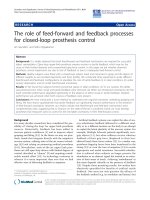The Heart of Grief Death and the Search for Lasting Love pptx
Bạn đang xem bản rút gọn của tài liệu. Xem và tải ngay bản đầy đủ của tài liệu tại đây (9.98 MB, 310 trang )
The
Heart
of
Grief
This page intentionally left blank
The
Heart
of
Grief
Death
and the
Search
for
Lasting
Love
THOMAS
ATTIG
OXFORD
UNIVERSITY PRESS
New
York
«
Oxford
2OOO
OXPORD
UNIVERSITY PRESS
Oxford
NewYork
Athens Auckland Bangkok
Bogota
Buenos Aires Calcutta
Cape
Town
Chennai
Dar
es
Salaam Delhi Florence
Hong
Kong Istanbul
Karachi
Kuala Lumpur Madrid Melbourne Mexico City
Mumbai
Nairobi Paris
Sao
Paulo Singapore Taipei Tokyo Toronto Warsaw
and
associated companies
in
Berlin
Ibadan
Copyright
©
2000
by
Oxford University Press, Inc.
Published
by
Oxford University Press, Inc.
198
Madison Avenue, NewYork,
NY
10016
Oxford
is a
registered trademark
of
Oxford University Press
AD
rights reserved.
No
part
of
this publication
may be
reproduced,
stored
in a
retrieval system,
or
transmitted
in any
form
or by any
means,
electronic, mechanical, photocopying, recording,
or
otherwise, without prior permission
of
Oxford University Press.
Library
of
Congress
Cataloguing-in-Publicarion
Data
Attig,
Thomas.
1945-
The
heart
of
grief:
death
and the
search
for
lasting love
/
Thomas
Attig.
p.
cm.
ISBN-13
978-0-19-511873-5;
978-0-19-515625-6
(pbk.)
ISBN
0-19-511873-1;
0-19-515625-0
(pbk.)
1.
Bereavement—Psychological
aspects.
2.
Bereavement—Psychological
aspects—
Case
studies.
3.
Grief.
4.
Grief—Case
studies.
5.
Death—Psychological
as-
pects.
6.
Loss
(Psychology)
I.
Tide.
BF575.G7A7882000
155.9'37—dc21
99-049842
A
Grief
Observed,
by C. S.
Lewis, Faber
and
Faber Ltd.
"Old Friends," words
and
music
by
Mary
McCaslin,
copyright
©
1977,
Folklore
Music
(ASCAP).
"Old Friends." Copyright
©
1968
by
Paul Simon. Used
by
permission
of the
pub-
lisher: Paul Simon Music.
35798642
Printed
in the
United
States
of
America
on
acid
free
paper
In
loving memory
of
my
father, Clare
Attig,
and
my
grandmother, Mary
Nagel,
and
in
gratitude
for all
they have
given
and
continue
to
give.
This page intentionally left blank
Contents
Preface
xi
I.
PLACES
IN THE
HEART
Where
Are
They
Now?
3
Living
with
Sadness
8
Carrying
the
Hurt
15
Longing
for
Their
Return
22
Believing They
Live
On 28
Ghosts
and
Other Contacts
34
Loving
in
Separation
39
Good
and
Troubled
Loving
42
Receiving Their Legacies
45
Giving Them
Places
in Our
Hearts
50
Lasting Love
Is
Good
for
Them
54
Lasting Love
Is
Good
for Us 59
Learning
to
Love
in a New Way 63
II.
TRANSITIONS
TO
LASTING
LOVE
Taking
Leave
and
Opening
Our
Hearts
67
Missed
Opportunities
74
Frozen Scenes
80
Investing Ourselves
in
Ceremonies
86
Choosing
Our Own
Ways
91
Conflicts
about Ceremonies
97
III.
MEMORIES
Holding Them
in
Memory
107
Unfinished
Business
112
Negative Ties That Bind
Us
118
Horrific
Memories
122
Memories
and
Dying
Days
126
Remembering
at the
Time
of
Death
132
Fragile
and
Fleeting Memories
136
Incomplete
and
Partial Memories
142
Richly
Meaningful
Memories
147
The
Dance
Continues
in
Memory
153
IV.
PRACTICAL
LIFE
They
Are
with
Us in Our
Practical
Lives
Acting
on
Promises
167
UsingTheirAdvice
and
Counsel
172
Doing Things Their
Way
177
Following
in
Their Footsteps
182
Making Their Cares
and
Interests
Our Own
V.
LIFE
OF THE
SOUL:
RETURNING
HOME
Loss
and
Soul Pain
193
Choosing
How We
Approach
Our
Hurt
198
They
Are
with
Us in Our
Souls
204
Meeting Them
in
Things They Leave Behind
. . 209
Soul
Food
and
Soul Music
214
Meeting Them
in
Familiar
Places
218
Seeing Them
in
Others
222
Finding
Our
Roots
in
Their
Life
Stories
. 22
Touching
Our
Souls
in
Mysterious
Ways.
230
Learning
to Be
Soulful
235
161
186
VI.
LIFE
OF THE
SPIRIT:
REVIVING
HOPE
Loss
and
Spiritual Pain
245
Their
Spirits
Are
with
Us 250
Resilience
257
Searching
263
Changing
and
Growing
268
Striving
272
Joy and
Adventure
276
Afterword:
Grief
Is a
Journey
of
the
Heart
281
Acknowledgments
287
This page intentionally left blank
Preface
Death
ends
a
life,
not a
relationship.
—Morrie
Schwartz
vl
T-r
^
As
a
teacher,
speaker,
and
author
I've
listened
to
count-
less
grieving
persons
in the
last
twenty-five
years.
Most
of
what
I
know
about
grieving
I've
learned
from
their
stories.
I've
never
spoken
to
anyone
who
mourns
for
someone
they
love
who
does
not
want
to
continue
loving
them
in
some
way.
Not
knowing
how to
continue
to
love
brings
great
pain
and
anguish.
Recently
a man
came
up to me at a
conference
to
say,
"I
want
you
to
know
how
much
I
hated
you
years
ago."
I'd
never been
approached
quite like that
before
by
someone
with
such
gentle
eyes.
He
seemed
as
eager
to
explain
as I was to
hear
what
he had to
say.
He
said
he was in an
audience seven years
earlier
when
I
spoke
about
what
it is
like
after
someone
we
love dies.
He
said
it was as
if
I was
looking directly
into
his raw
grief over
his
daughter.
He
remembered
my
talking
of how we
naturally
want
someone
we
love
to
be
with
us. How
we
fear
that
if
we
stop
wanting
their return
when
they die,
we
will
stop loving
them.
Then
he
said, "There
I was
wanting
my
daughter
back
more
than
anything.
And you put
your
finger
on
my
deepest
fear."
He
recalled
how I
said
that
the
worst agony
of
intense grief comes
when
we
realize
that
the
return
we
want
more
than
anything
is the
one
thing
we
cannot
have.
"I was in the
darkest place
I'd
ever been
in my
life.
And you
told
me
that
the
only light
I
could imagine
was
one
I
could never see.
I
felt
so
desperate
I
wanted
to
scream
and
rush
you at the
front
of the
room."
XI
I
asked
him why he
hadn't.
He
began, "Deep
down,
I
realized
you
were
right.
I
hurt
so
terribly because
I
wanted
what
could
not
be.
But I
still wanted
it.
Your words brought
me
face-to-face
with
the
futility
of
staying where
I was in my
grief.
Thank
God you
didn't
stop
talking."
He
recalled
other things
I
said: Grieving persons
who
want
their
loved
ones back need
to
look
for
some other
way to
love
them
while
they
are
apart. Desperate longing prevents their
finding
that
different
way of
loving.
Letting
go of
having
them
with
us in the
flesh
is
painful
and
necessary.
But it is not the
same
as
completely letting
go.
We
still hold
the
gifts
they
gave
us,
the
values
and
meanings
we
found
in
their lives.
We can
love
them
as we
cherish their memories
and
treasure their
legacies
in our
practical lives, souls,
and
spirits.
He
said,
"Through
my
hurt
and
anger
I
began
to see how I
would always
be
different
because
I had
those precious years
with
my
daughter."
I
thanked
him for
approaching
me and
asked
how he was
doing
currently.
He
said,
"Things
are
going
well
with
my
wife
and
son.
I'm
afraid
I got
lost
in my
grief
for a
while,
and
I'm
glad they waited
for me. I
still miss
my
daughter,
and I
always
will.
But I
miss
her
in a
different
way. It's
not the
gut-wrenching longing
it
was. I've
found
other ways
to
keep
her in my
life.
It's
not
like
I
lost
all
of
her.
Still,
every once
in a
while,
like right now,
I
wish
I
could
just
see
or
hold
her
again."
He did not
elaborate about
how he
keeps
her in
his
life.
But I
could
see the
gratitude
and
love
in his
peaceful
eyes.
At
another recent
conference,
I
spoke
to a
large
audience about
how
lasting
love
for
those
who die is
both possible
and
desirable.
A
woman
caught
my arm as we
were
all
leaving
the
session.
"I
want
you to
know
that
I
never allowed myself
to
grieve
my
mother's death.
I
didn't
want
to let go. Now I'm
going
to let
myself
grieve."
Before
I
could
respond,
she
withdrew
into
the
crowd.
Behind
her
tears
I saw
relief
and
gratitude
in
her
face.
She
seemed
released
from
a
painful
refusal
to
grieve.
It was as
if
she had
believed
that
if she
grieved,
she
would have
to let go of her
mother,
to
stop
loving her.
That
was the
last thing
she
wanted
to do. Her
tears
xii
•
Preface
expressed
the
agony
of a
paralyzing
refusal,
relief
from that
agony,
and the
beginning
of
grieving
itself.
It
didn't matter whether
she was
brought
to
believe that grieving
requires
complete letting
go by a
counselor
or
therapist, through
her
own
professional
training,
or by
well-meaning
family
or
friends.
The
belief
is
widely held.
I
have always thought
it is
profoundly
mistaken.
What
mattered
was
that
she now saw how the
belief
had
misled
her
and
cost
her
dearly.
She
broke free from
it. And she
seemed
grateful
to
realize that grieving
can
lead
instead
to
lasting love.
The
next
day she
approached
me
again
in a
crowd,
"I
don't
think
I
made myself
clear
yesterday.
My
mother died twelve years
ago."
She
checked
my
eyes
to see if her
words
registered.
She
managed
a
reassured
smile through more
tears
and
disappeared
again.
Her
words
helped
me see
more
clearly
the
extent
of
her
hurt.
She
had
chosen
to
dwell
for
years
in the
pain
of
missing
her
mother rather
than
to
endure
the
unacceptable
pain
of
completely letting
go. Her
refusal
to
grieve
her
mother's death
had
kept
her
distant from
the
lasting
love
she
might have
found
in
those dark years.
She
seemed
eager
to
open
her
heart again
to her
mother's goodness.
She saw
room
in it to
carry
both
the
pain
of
missing
her
mother
and
continuing love
for
her.
I
couldn't
help
wondering what
life
had
been
like
for her and
those
who
loved
her
through those twelve years
as she
stifled
her
grief.
Did
she
have
a
husband
and
family?
Had she
been distant
and
withdrawn
from them?
How
might
her
agony have
affected
her own
children?
I
shuddered
at the
thought
of the
possible
costs
of her
belief
about
grieving
and
letting
go.
I
shuddered, too, when
I
thought that hers
is
only
one
story
among thousands, perhaps millions,
of
those whose lives have
been changed
for the
worse
by the
belief that grieving requires
that
we let go of
those
we
love. Some, like her, swallow their
grief,
linger
in the
pain
of
missing those they love,
and
never
experience
the
consoling benefits
of
lasting love. Equally tragi-
cally,
many others struggle
to
sever,
forget,
or
ignore meaningful
Preface
•
xiii
ties
to
those they love
for the
sake
of
grieving
"properly"
as
they believe they must. Still others
feel
uneasy
or
become
se-
cretive about enduring connections they still maintain
with
those
who
have died. Some actually
feel
shame about lasting
love.
Such stories
are
among
the
saddest
that grieving persons tell
me.
They
are
stories
of
missed opportunities
and
deep anguish.
Whenever
I
hear them,
I
respond with assurance that loving need
not
stop
with
separation
in
death.
We can
find
lasting love
for
our
children, parents, spouses
and
companions, siblings, other
family
members,
and
friends.
This
assurance
most always brings
comfort.
The
capacity
to
find,
acknowledge, appreciate,
and
cul-
tivate
enduring connections
with
those
we
love
is
unbounded.
It
is
never
too
late
to
revive love deeply
felt.
Much
of the
damage
caused
by the
belief that grieving requires complete letting
go
can
be
reversed.
I
offer
such
reassurance because
I
have seen
life-affirming
and
life-enhancing lasting love
in the
eyes
of so
many other grieving
persons
and
heard
it in the
stories they have told
me.
Love that
was
real does
not die
when
those
we
love die. Many have told
me of
places
in
their hearts where they hold
and
love those
who
have
died.
I
have learned
how
cherishing memories
and
contin-
uing
to
care
about some
of
what they cared about
has
enriched
survivors' practical,
soulful,
and
spiritual lives. What
I
have
learned
has
enabled
me to
recognize
such
love
and its
benefits
in my own
heart,
in
members
of my
family,
among
my
friends,
and
in the
culture around
me. And I
have witnessed
how the
hope
for
lasting love
can
motivate
us to
grieve
in
ways that bring
consolation
and
restore
our
wholeness.
This book
is
primarily
for
those
of us who are
grieving.
To
them
it
offers
encouragement
and
guidance
in
seeking
and
find-
ing
lasting love.
And
this book
is for
those
who
care
for and
about
us as we
grieve, including
our
family
and
friends
as
well
as
caregiving
professionals
and
volunteers.
To
them
it
offers
un-
xiv
•
Preface
derstanding
of why
finding lasting love matters
so
much
to
us.
The
ideas
it
contains
can
help
them
to
encourage
and
support
us
as we do
what
we
most want
to do
when someone
we
love
dies.
My
instinct
has
always told
me
that wanting
to
continue lov-
ing
after
death
is
fully
natural
and
appropriate.
My
teaching
and
contributions
to
professional dialogue have consistently
run
counter
to the
predominant
and
powerful stream
of
thinking that
as
we
grieve
we
must
let go
completely.
As an
applied philoso-
pher,
I
have
not
been captive
to the
prevalent theories, training,
approaches,
and
vocabularies that encourage complete letting
go.
I
have long tried
to
prod theorists
to
reconsider their ideas about
grieving
and
letting
go.
Over
the
years,
I
have found
and
developed vocabulary that
fits
comfortably with
and
reflects
the
richness
and
depth
of
what
I
have heard
and
learned about such lasting love. I've ventured
into
new
territory
in
articulating what most
professional
literature
on
grieving neglects
and
what most
of us
find
difficult
to put
into words
in
everyday
life.
I
have found
apt and
effective
ways
to
speak
and
write
about love
in
terms
of
heart, soul,
and
spirit.
Real-life stories
and
accounts
of
personal experiences make
the
possibility
and
desirability
of
lasting love transparent
and
con-
crete.
I
have used detailed stories
and
accounts
to
ground these
matters
of the
heart. Audiences
of
grieving persons
and
profes-
sionals
have responded
with
similar enthusiasm
to
these
fruits
of
years
of
listening
and
reflection
and
encouraged
me to
bring
my
thinking
to
you.
No
doubt
we do
need
to let go of
what
stalls
our
grieving,
hinders
our
ability
to
thrive,
or
blocks
our
returning
to the
full-
ness
of
life.
Sometimes
we are
gripped
by
deep
and
often
un-
conscious desires
to
avoid
the
pain
of
grieving, deny
the
finality
of
death
or the
reality
of
separation, dismiss ambivalence
or se-
rious
difficulties
in our
relationships,
or
delay moving into
a
daunting
future.
Sometimes
we are
held
by
destructive aspects
of
Preface
• xv
our
relationships, including dependence, possessiveness, abuse,
or
control
and
manipulation. Sometimes
our
holding
on to the
past
or
those
who
have died
is
obsessive, preoccupying,
or
excessive.
And no
doubt therapists, counselors,
and
writers
about grief have
served
us
well
in
identifying such hazards
in
grieving
and
devel-
oping strategies
to
help
us
avoid them.
But
there
is
nothing
in all of
this that implies that
we
must
let
go
completely.
There
is no
reason
to let go of the
good with
the
bad.
The
great majority
of our
closest relationships with fam-
ily
and
friends
have good
in
them. Those
we
mourn lived lives
filled
with
value
and
meaning.
What
we
have shared
with
them
in the
past powerfully influences
who we are and
become. Death
does
not
erase
our
past with those
we
want
to
continue loving.
We
can
constructively hold
on to the
good
in
lives
now
ended
and
sustain rewarding connection
to the
past.
Of
course, stories
of
grieving
are not
simply stories
of
life-
affirmation,
hope,
and an
easy
transition
to
lasting love
and the
consolation
it
brings.
We
will experience pain
and
anguish.
We
will meet daunting challenges.
The
stories
I
include here reveal
the
shattering
effects
of
losing those
we
love:
the
anguish
of
long-
ing for an
impossible return. Broken hearts, homesick souls,
and
grounded spirits. Encounters with worlds transformed
by
loss.
Wrestling with
the
great mysteries
of
life,
death,
and
suffering.
Learning
to
carry pain. Finding
the
courage
to go on
living
with-
out
those
who
have died
by our
sides. Struggling
to
feel
at
home
again
in our
physical surroundings,
with
fellow survivors,
and in
the
greater scheme
of
things. Reshaping
our
daily lives.
Redi-
recting
our
life
stories. Changing ourselves.
Reviving
our
souls
and
spirits.
Stories show
us how
different
we are in our
grieving. Each
of
us
experiences loss, even
of the
same person, uniquely.
No two
hearts
ache
the
same way.
We
each
face
distinctive challenges
in
our own
corners
of the
worlds
we
inhabit.
No one can
respond
to
loss
and
challenge
for us. We
alone
can
change
our
lives
and
xvi
•
Preface
our
selves.
We
play
our own
parts
in
reshaping
and
redirecting
life
in our
families
and
communities.
Love
is the
heart
of
these stories
of
grieving. Love
is the
bond
that connects
family
and
friends.
So
it's
not
surprising that
every-
thing
within
us is
poised
to
keep love alive.
Our
feelings
and
desires
for
them
do not
change
the
moment they die. Neither
do our
motivations, habits, dispositions, expectations,
and
hopes.
We
fear
that
if we
change these things,
we may
forget
or
stop
loving them. Nearly
all of us
want
to
keep
our
love alive.
But
we are at a
loss
as to how to do it.
Most
of us
want
to
continue loving because
we
have
had the
good fortune
to
love
and be
loved
in
return
by
those closest
to
us.
This
is not to say
that
many,
or
any, relationships
or
persons
we
love
are
perfect
or
ideal. They
are all
human:
at
once won-
derful
and flawed. We are
ambivalent about most
of our
loving
relationships.
The
familiar
John Denver song "Perhaps Love"
captures
their sometimes placid, sometimes stormy, sometimes
joyful,
sometimes
painful,
sometimes enriching,
and
sometimes
challenging
character.
His
lyrics
reflect
what
we all
know: that
loving
relationships
can be
both
powerfully constructive
and of-
ten
troubling
forces
in our
lives.
Typically,
we
continue
to
love
others
while they live because what
we
love about them
or
about
sharing
life
with
them matters more
to us
than what disappoints
or
bothers
us. We
struggle
to
hold
on to and
cultivate
the
good
and
to let go of the
rest.
We
continue this struggle when they
die.
Sadly,
some
of us
survive relationships that were deeply trou-
bled
and
even profoundly destructive
in
which there
is
little
love
to
continue.
Your
story
of
grieving
may be
dominated
by
tales
of
such
troubles
and
your struggles
to
break
free
of
their lingering
effects.
If so, I am
sorry
to
say, this book
is not
likely
for
you.
At
least
not at
this time.
It may
become
useful
for you
later,
if
and
when
you
reach
a
point
of
wanting
to
find
a
saving grace
within
your dark tales.
Preface
•
xvii
Grieving
is a
journey that teaches
us how to
love
in a new
way
now
that
our
loved
one is no
longer with
us.
This journey
from
loving
in
presence
to
loving
in
separation
is
possible because
the
lives
of
those
who
have died remain real
in the
lives
of
those
of us who
knew
and
loved them.
The
times
we
spent
together
are
not
erased
from
history.
We
retain
our
unique acquaintance
with those
we
love.
We
still hold memories that
we can
review
privately
or
share
with
one
another.
We
still
feel
the
imprints
of
their
lives
on us
where
we
hold their practical,
soulful,
and
spir-
itual
legacies.
If
our
journeys
in
grief
are to
lead
us to
lasting
love,
we
must
reshape
our
feelings, desires, motivations, habits, dispositions,
ex-
pectations,
and
hopes. Hopeful paths beyond
the
worst
of our
suffering
lead through
often
painful
transformations.
The
paths
on
this journey
are
both arduous
and
hopeful.
Walking them requires that
we
mount
the
courage
to
move
through
our
hurt.
And
that
we
open ourselves
up to
receive what
those
we
love
still have
to
give.
The
paths lead through
heart-
ache,
soulful
pain,
and
spiritual pain unlike
any
other
suffering
we
know. Staying
the
course
on the
grieving journey requires
that
we
believe that lasting love
can
penetrate
our
worst
suffering
and
move
us
beyond
it. It
calls
for
steady resolve
to
move toward
treasuring
what
we
retain
from
knowing
and
loving those
who
have died.
And it
requires trust that when
we
work
through
the
worst
of our
hurt, what
we
have
not
lost
will
return
to us.
In the
most intense agonies
of
grieving,
it is
tempting,
very
tempting,
to
believe that "All
is
lost."
In the
midst
of the
worst
of our
pain
and
anguish,
it can
seem
as if we are
losing again.
Fear
that hurt will overwhelm
us
keeps
us
from
confronting
pain-
ful
reminders
of the
life
now
ended. This retreat adds distance
not
only
from
what triggers pain
but
also
from
what rouses
cher-
ished memories
and
feelings
of
connection.
Our
tears cloud
our
memories.
The
past
recedes
painfully
behind
our
desperation
for
its
return.
If
only they could
be
here once more
for a
brief
while.
We
could then experience their
sharp
reality
in
person. But,
alas,
xviii
•
Preface
we
cannot.
It can
seem
as if
those
we
love
are
leaving
us a
second
time.
But if we can let go of our
anxiety grounded
in the
belief that
all
is
lost,
we
will
find
there
is
little
basis
for
either
the
anxiety
or
the
belief.
When
we
hurt least,
we
remember best.
Our
mem-
ories become vivid
and
detailed again.
When
we
long
least
for
its
return,
we
recover
access
to the
past
we
shared with those
who
have died.
The
good
that
is in
that past
can
still touch
and
move
us. And we can
discover
and
make
our own the
practical,
soulful,
and
spiritual legacies
it
contains.
Our
journey
in
grief
can
bring
us to
lasting love that honors those
who
have died, enriches
our
lives
in
survival,
and
takes
a
place alongside
our
other rela-
tionships with fellow survivors
and new
people
who
enter
our
lives.
We
have
no
choice about whether
we
will grieve.
The
world
changes
irretrievably when those
we
love die.
Respond
we
must.
We
only have
a
choice about what paths
we
walk
in
response.
We
will
suffer,
no
matter which paths
we
choose.
When
we
walk
paths
toward lasting love
and find it, its
many rewards make
the
journey
worthwhile.
Stories
of
personal journeys toward lasting love
are the
heart
of
what
I
offer
in the
pages that follow. Stories that show
how
to find and
embrace
life-affirming
and
life-enhancing legacies.
Stories that show
how to
avoid
the
hazards
of
obsession, pre-
occupation,
and
excess. Stories
of
holding
on to the
good
and
letting
go of the
rest. Some
are
stories people have shared with
me.
Some come
from
my own
experiences.
None
of us
walk
identical paths
on
such journeys. Still,
we can
learn
a
great deal
from
such stories.
I
know
I
have.
So,
too, have others with
whom
I
have shared many
of
these tales
in my
years
of
teaching,
speaking,
and
writing about grief
and
loss.
It is a
privilege
to
know
these stories
and
share them here
with
you.
We
can
identify
with
the
longing
for
lasting love
in
these
stories.
With
the
suffering
that bereavement brings.
With
the
anxiety about whether
we can find
lasting
love
for
ourselves.
Preface
•
xix
With
the
anguish that accompanies
the
reshaping
and
redirecting
of our
lives
in the
process.
We can
know that others have walked
similar
difficult
paths
and met
similar challenges.
We
can
also resonate
with
the
hope
that pervades these stories.
With
the
promise they
offer.
We can
take heart
from
others'
finding
consolation
and
reward
on
such journeys.
We can
find
inspiration.
We can
also imagine
and
begin
to
find
ways
to
help others.
Others
who
survive with
us.
Family, companions,
friends,
or
oth-
ers
we
know
who are
grieving
losses
that
do not
affect
us as
directly
or as
powerfully.
Or
those whom
we
serve
as
volunteers
or
professionals.
It
is
hard writing
a
book when
you
really wish
you
could
sit
down
to
have
a
conversation with each
and
every reader.
I
hope
you
can
take away
from
your reading something
of
what good
conversation
offers.
Look
in
these pages
for
encouragement, sug-
gestions,
and
hope.
Go at
your
own
pace.
Enter
the
conversation
wherever
it
looks most promising
or
helpful
to
you. Pick
it up
at
other points where
it
appeals
to
you.
Or
follow
it
through
from
beginning
to
end.
I
hope
you
will
find
it a
good companion
on
your journey.
November
iggg
T. A.
Preface
XX
I
Places
in the
Heart
This page intentionally left blank
Where
Are
They Now?
But
where
is the
part
of
Papa
that
loves
me and you and
Daddy?
—Laura,
age
jive
When
her
grandfather
had a
fatal heart
attack,
it was the
first time anyone
close
to
five-year-old
Laura
had
died.
How
strange
to
see her
father, Frank,
cry
openly
and
shake
so
hard.
And to see
her
mother,
Joanne,
comforting
him as
she, too, wept. Laura sensed
a
big
change
in her
world,
and it
frightened her. Joanne glimpsed
Laura's
distress
while
she
consoled
Frank. Laura
appeared
as
much
confused
as
upset. Joanne
reached
out her
hand
for
Laura
and
held
her
close
as she
kept
her
other
arm
around Frank.
She
explained that
Daddy
had to
leave very soon
and
promised
her
full
attention
then.
Frank
left
in
half
an
hour
to
make funeral arrangements
with
his
mother,
brother,
and
sisters.
Joanne then took Laura onto
her
lap.
As she
held her,
she did
her
best
to
comfort
her. Stroking
her
daughter's
hair,
she
explained
that Daddy
was
crying
because
he
loved Papa very much
and
missed
him.
She
said
he
would probably
be sad for a
long
time.
She ex-
plained that
she was
crying
both because
of
how it
hurt
to see
Daddy
and
because
she
would
also
miss Papa. Laura began crying,
and
they held
each
other
for
several
minutes.
Joanne
told
her
that
it
3
was
okay
to cry
when someone
you
love
dies
because
it is a sad
time.
When
she
stopped
sobbing, Laura turned
her
face
up to
Joanne's
and
asked,
"What
happened
when
Papa
died?" Joanne explained
that
Papa
died
when
his
heart
stopped
working.
"When
your heart
stops
and the
doctors
can't start
it
again,"
she
said, "the
rest
of
your
body
stops
working,
too."
She
went
on to
explain
very
gently that
Papa
wouldn't
be
coming
for
visits
or
playing
with
Laura again.
After
sobbing again
for
several
minutes, Laura asked, "Mommy,
will
I
ever
see
Papa
again?" Joanne explained that
she
would never
see
her
grandfather
alive again
on
this earth.
She
would never again
be
able
to sit in his
lap.
She
went
on,
however,
to ask
Laura
to
close
her
eyes. When Laura did, Joanne said, "Try
to
think
of
Papa.
Can
you see his
face?
Can you see him
coming through
the
door
with
a
big
smile?
Can you see him
laughing
and
playing
with
you?" Laura
smiled,
and she
said
with
some enthusiasm, "Yes,
I can see
Papa,
Mommy."
Joanne then
reassured
Laura that
she
could
see her
Papa
in
that
way any
time
she
wanted. This
was a
great
comfort
to
Laura.
She sat
with
her
eyes
closed
for
several
minutes.
Laura then
opened
her
eyes
and
again turned
to
look into Joanne's.
She
asked, "Where
is
Papa
now,
Mommy?"
The
question took
Joanne's
breath
for a
moment. Then
she
responded,
"That's
a
hard
question, Laura!" "Why, Mommy?" Laura
came
back
immediately.
Joanne paused. Then
she
said,
thoughtfully,
"Because
Papa's
body
is
at the
funeral home.
But the
part
of
him
that
loved
and
cared
for
us
isn't
there
anymore."
Joanne went
on to
explain about funerals
and
burial.
She
told
Laura about what people
do at
calling
hours
and
funerals.
She
told
her
what
she
would
see and
hear
if she
chose
to be
part
of
events
before
Papa
was
buried.
She
said
Laura
was
welcome
to be
with
her
and
Daddy
if she
wanted
to be. She
explained that
she
could
see
Papa's
body
if she
wished. Laura said immediately that
she
wanted
to
see him and be
with
Mommy
and
Daddy
as
much
as
possible.
Joanne
barely
relaxed
when Laura asked
a bit
impatiently, "But
where
is the
part
of
Papa
that
loves
me and you and
Daddy?"
Again,
4 •
Places
in the
Heart









